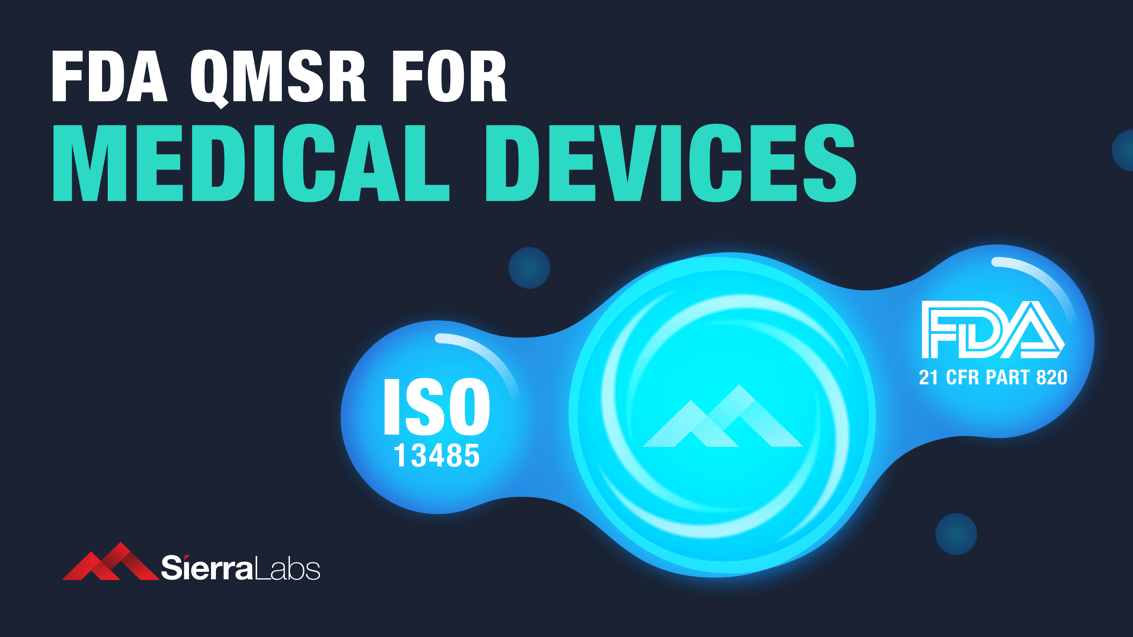Simple Guide to FDA’s harmonization of 21 CFR part 820 with ISO 13485:2016

The FDA recently made amendments to its Quality Management System Regulation (QMSR) helping bring CFR Part 820 up to international standards with comprehensive definitions and requirements that match the ISO 13485:2016 framework. In this blog, we'll uncover the FDA's new incorporation of ISO 13485:2016 into 21 CFR Part 820 outlining the recent changes, showcasing their reasoning behind them, and offering clarification on expectations.
Why ISO 13485: 2016 is utilized?
ISO 13485:2016 sets the standard for a Quality Management System (QMS) that governs any organization involved in the manufacturing and distribution of medical devices. This standard provides structure to companies, ensuring strict adherence throughout stages of their product lifecycle.
With a unified standard set in place across the world, many leading manufacturers have embraced ISO 13485 as an integral part of their operations. This internationally recognized norm provides proof of quality and safety commitment for medical device companies on a global scale.
Amendments to term definitions
The quality management system requirements (QMSR) have been revised to incorporate the newly amended definitions and terms from both 21 CFR part 820 and ISO 13485:2016. New terms include:
- Component
- Finished device
- Design validation
- Remanufacture
To ensure consistency with the FDA, the following terms’ definitions will remain unchanged in 21 CFR Part 820:
- Device
- Labeling
- Manufacturer
- Product
This amendment also further clarified existing terms used in ISO 13485:
- Organization = Manufacturer
- Safety and performance = Safety and efficacy
- Validation of processes = Process validation
Incorporation of Risk Based Approach
Before the amendments of QMSR, 21 CFR Part 820 provided guidance on risk management activities through design validation. Its revisions now offer an even more comprehensive approach to managing risks. To increase safety and quality standards, the revisions will integrate risk management principles from ISO 13485:2016 into CFR part 820 for greater alignment with ISO 14971.
It is important to note that the FDA is not creating a program that awards certificates to organizations that meet the requirements of ISO 13485, nor are they providing inspections resulting in certification.Added requirement for Quality Management System
Implementing a Quality Management System includes documented procedures that adhere to the current ISO 13485 standards, as well as updated Part 820 regulations. Companies must ensure their quality management system is up-to-date to guarantee class II and III devices, along with a selection of listed class I products adhere to § 820.30. Failure to adhere may result in significant financial penalties for non-compliance.
Modifications to Record Control and Documentation
Under §820.35, companies now have additional control measures for records. It is now mandatory for everyone who has approved or re-approved records to provide both their signature and date on each document as an extra layer of accountability and traceability. All patient-related data required for Medical Device Reporting must be meticulously recorded under complaint and servicing activities.
Updates on device labeling and packaging controls
The revised QMSR will maintain the requirement for control of labeling and packaging under 21 CFR part 820 as noted in clause 7.5.1 under ISO 13485:2016. This is to ensure that manufacturers have:
- examined labeling and packaging for accuracy prior to release or storage;
- documented the release of the labeling for use, and
- inspected the labeling and documented the results of the labeling inspection
In line with updates to part 820, the Quality Management System Risk (QMSR) has also adopted an improved approach for inspections that replaces its current QSIT technique which we can explore further in an upcoming blog.
Equip Your Team with a QMS
Now that you have a clearer understanding of QMSR, let’s talk about ways to actually meet conformance for these standards within your organization!
Having an electronic Quality Management System is crucial for teams to streamline documentation from start to finish to demonstrate compliance with regulations like QMSR or even ISO standards. Additionally, an eQMS makes FDA audits a breeze by easily demonstrating full lifecycle traceability of your products.
Sierra QMS is designed for organizations who are looking to market medical devices in a global regulated environment. Sierra Quality Management System (QMS) allows you to easily integrate risk management into your production process and operate with your own preferred tool-sets.
Want to see how implementing Sierra QMS can accelerate your device's journey to market?
Click Here for a Free Trial!
It's that simple.

